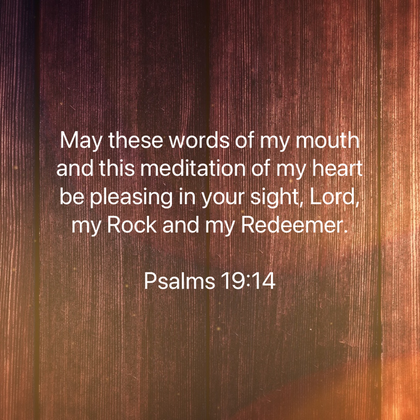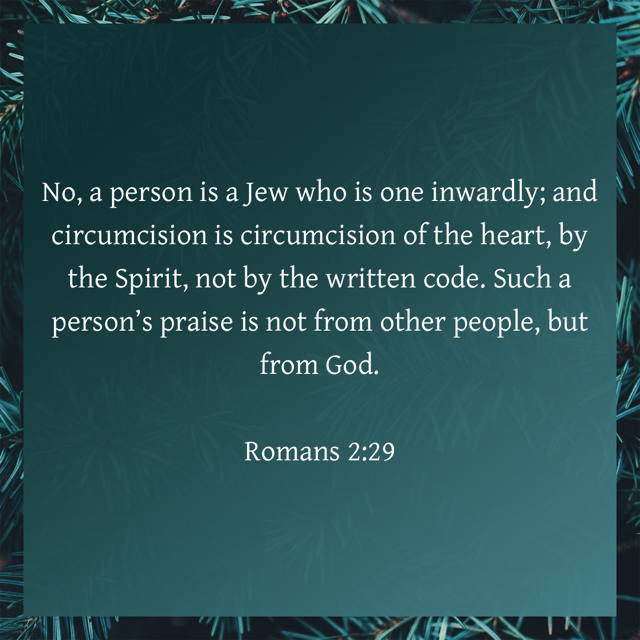|
Good morning!
We're so glad you decided to join us today!
When we meet together in person, we take time to share our joys and concerns. Consider your last week, and any prayer requests you might have. If you would like, you can share prayer requests as a comment on this post. When you are ready, use the prayer below (source) to get started.
Thank You, Father, that I am born again and that You have saved me form sin and death, through Christ Jesus my Lord, that I have been born from above in spirit and truth.
Lord, I just want to thank You for the wonderful things that took place the moment that I trusted in Jesus as Saviour. Thank You, that You transferred me from the kingdom of darkness into the kingdom of Your dear Son. Thank You, that I am accepted in Christ Jesus, Your beloved Son and have been clothed in His righteousness – Thank You that I have become a child of God and been made a joint-heir with Jesus. Thank You that in Him I am seated in heavenly places and that I have become eternally secure, having been given eternal life, by faith in Jesus Christ my Saviour. Thank You also for the understanding that the moment that I was born again, Your Holy Spirit baptised me, once and forever, into the body of Christ, that He placed me eternally into that body of believers that is called the Church. Thank You for this precious baptism into Christ and may I learn to grow in grace and in a knowledge Him Who loved me and gave Himself for me. Fill me day by day with Your Spirit. Lead and guide me in the days that lie ahead and thank You that in Christ I am saved by grace alone, through faith alone in Christ alone and that He did it all and it is finished. In Jesus' name I pray, Amen.
Today's lesson is on Acts 8:29-39.
A central figure in today’s lesson is referred to as “Phillip the evangelist, one of the seven” Like his colleague Stephen, Phillip moved from a ministry of feeding widows to preaching the gospel. Phillip was the first to take the gospel to the Samaritans in fulfillment of Jesus’ directions in Act 1:8. “But ye shall receive power, after the Holy Ghost is come upon you: and ye shall be witnesses unto me both in Jerusalem, and in all Judaea and in Samaria, and unto the uttermost part of the earth." This happened as a result of persecution In Jerusalem. During a highly productive ministry in Samaria, an angel of the Lord directed that Phillip “Go South to the road- the desert road- that goes down from Jerusalem to Gaza.”
Acts 8 : 27-28 reveals several facts regarding the man Philip encountered in today’s text. First he was from Ethiopia, a kingdom in Africa that is south of Egypt. Second, he was a eunuch, a castrated man. Eunuchs were found in royal courts throughout the ancient world. Some rulers thought they were more reliable in general and trustworthy around woman in particular. Third, he was a servant to royalty. In particular, he served the queen of the Ethiopians as one having charge over the treasury. He was indeed a person of influence and wealth. He would have to be wealthy to purchase a copy of Isaiah. The Great Isaiah Scroll measures about 9 inches in height and 24 feet in length. Philip might have been intimidated by the splendor of the eunuch’s chariot and thought any approach would be scorned. God’s Spirit, though, knew the heart of the man in the chariot had been prepared by his reading of Isaiah and so prompted Philip to approach. One opinion why he was reading Isaiah is that being a Eunuch he was forbidden by the law of Moses to worship or to be converted to Judaism. He would have been a God-feared. In Isaiah 56:3-5, it reads, “Let no Foreigner who is bound to the Lord say, 'The Lord will surely exclude me from his people.' And let no eunuch complain, 'I am only a dry tree.' For this is what the Lord says: 'To the eunuchs who keep the Sabbaths, who choose what pleases me and hold fast to my covenant-to the I will give within my temple and its walls a memorial and a name better than sons and daughters; I will give them an everlasting name that will endure forever.'" Philip ran up to the chariot and heard the man reading Isaiah the prophet. Philip trusting the Holy Spirit, interrupted the man and asked if he understood what he was reading. "How can I unless someone explains it to me?" So he invited Philip to come up and sit with him. The man was reading the passage of Scripture, "He was led like a sheep to the slaughter, and as a lamb before its Shearer is silent, so he did not open his mouth." This passage presents one to the clearest prophetic visions of the coming Messiah. This is part of the Servant Song. That text presents the Messiah as one who would suffer in accordance with God’s will rather than serve as a military leader who would fight for the political independence of Israel as many Jews expected. The imagery of sheep and lamb depicts the suffering servant as one who would not fight or protest while on the way to his death. Luke’s account of Jesus’ trials presents him like this silent sheep, especially when he appeared before Herod. "In his humiliation he was deprived of justice. Who can speak to his descendants? For his life was taken from the earth." The key to this passage from Isaiah is the word humiliation which describes the horrendous treatment that Jesus would undergo during his trials and crucifixion. Jesus was denied justice. Even though the Roman Governor, Pilate, declared that there was no valid charge against Jesus, Pilate still consented to the execution. That made it a case of judicial murder. Jesus, as the suffering servant of Isaiah’s prophecy, seemingly had no hope of being the father of future descendants. The eunuch asked Philip, "Tell me, please, who is the prophet talking about, himself or someone else?" Then Philip began with that very passage of Scripture and told him the good news of Jesus. The eunuch wanted baptized. The story of Jesus’ death and resurrection leads to a call for belief in him, repentance from sins and the cleansing of sins in baptism. The believer can rest assured that his or her sins are forgiven and that the presence of the Holy Spirit will be given. The eunuch stated that he believe that Jesus Christ is the Son of God.This was indeed the man’s confession of faith, the belief that Jesus was God in flesh and that his atoning death was the proper mission of the Messiah as prophesied by Isaiah The man gave orders to stop the chariot. Then both Philip and the eunuch went down into the water and Philip baptized him. When they came out of the water, the Spirit of the Lord suddenly took Philip away, and the eunuch did not see him again, but went on his way rejoicing. Philip, however, appeared at Azotus and traveled about, preaching the gospel in all the towns until he reached Caesarea. Life changing conversations can happen in a carriages. He and Philip discussed the Scriptures in depth. They talked about Jesus. As a result of their conversation, the Ethiopian believed and was baptized -- one life changed for eternity. Or was it more than one life changed, as the Ethiopian returned home to spread this message?
Conclusion: The Wonder of Fulfilled Prophecy
Many years ago, I heard Mildred Welshmen Phillips speak of her father, P.H. Welshimer. In the first decades of the twentieth century, Welshimer was the minister of the First Christian Church of Canton, Ohio. At its height, this congregation was often recognized as the largest church in the world, with a Sunday school attendance of 6,000 each Sunday. One of Welshimer’s more audacious public acts was to stage a debate with Clarence Darrow, the attorney who had won national recognition as the defender of evolution in the so-called Scopes Monkey Trial. Darrow was seen as the spokesman of a new kind of person in America, a public figure who was openly agnostic/atheists and who saw the Bible as nonsense, the church as a medieval relic and Christian faith as preposterous. The debate was inconclusive, as most of these sorts of things are, with Darrow rarely engaging the arguments of Welshimer. But, remarkably, the two became friendly after it was all over. Darrow confessed that Welshimer presented one argument about the Bible that gave him pause; its record of prophecy and fulfillment. Welshimer was doing nothing more and nothing less that what Philip did with the Ethiopian. The New Testament is loaded with quotations from the Old Testament that point to Jesus. This is not coincidental or accidental. The reader of Matthew cannot help but notice that he punctuates many of his stories of Jesus with the observation that this happened to fulfill Scripture. Presenting Jesus as the fulfillment of prophecy requires a high level of Bible Knowledge. But as Welshimer’s encounter with Darrow shows, there are opportunities to make gospel claims that are best framed by presenting of prophecy. When Isaiah 53 is read in light of the events of Jesus’ life, we should be struck by the remarkable fact that there are more than seven centuries between the two records! Those who have an inclination for deep, comprehensive knowledge of Scripture and its connections may be given opportunities to witness to unbelievers today in some manner like the Holy Spirit gave to Philip 2,000 years ago. Every generation of Christians must raise up those who are trained in understanding the Bible - their Philips- so they can explain it effectively and accurately to others. Prayer Our Father, you planned for Jesus to come, teach, heal and to go the cross for our salvation. You planned to raise him from the dead. You even orchestrated the meeting of Philip with one who was eager to hear. We welcome your plans that include using us as ones who are ready to preach Jesus. We pray in his name as we prepare ourselves. Amen. Questions
Benediction
This week's benediction is from the New International Version.
Next week's lesson will be on Acts 9:9-17. It will be Pentecost.
0 Comments
Leave a Reply. |
AuthorWe are a small, rural Presbyterian church in southwestern Pennsylvania. Archives
July 2024
Categories
All
|



 RSS Feed
RSS Feed